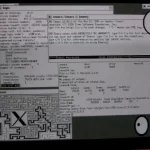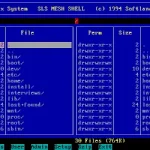Last Updated on: 20th July 2023, 01:25 pm
Web site: informatik.uni-erlangen.de
Origin: Germany
Category: Desktop
Desktop environment: GUI ?
Architecture: x86
Based on: Independent
Wikipedia:
Media: Install
The last version | Released: 1993 ?
The Linux Support Team Erlangen – a small group of students at the University of Erlangen-Nuernberg.
Developer’s description:
The LST distribution’s goal is to provide a solid, reliable, easy to install (even for beginners) and well-documented system. We are not hunting for the newest kernel or gcc versions. We do updates when they are necessary or provide really new functionality, are well tested, integrated in the system and working smoothly with the rest of the system. The distribution consists of a base system and additional packages.
Currently the following packages are available: doku (doc), text, tex, develop, xdevelop, xbasis, xappl, xemacs, tinyx, network, grafik, src, misc.
The complete system is 50 3.5″ disks and 1500 pages printed documentation including the LDP guides (IGS,KHG,NAG), HOWTOs, FAQs, the German Linuxhandbuch, install-guide and many other useful documents we collected over the time.
Our distribution is preconfigured for German users and comes with a 50 page step by step installation guide that leads you through the menu-driven installation scripts (both in german). We started this distribution to help newcomers with their first steps into Linux. Therefore our scripts are smart enough to handle all of the ‘dirty work’ like setting up system configuraton (including LILO, modem, mouse, mounts, mtools, access to DOS, users, X11) and network configuration (TCP/IP, Routing, Mail, News, UUCP, SLIP).
Historically (and of course easier for us) most of the documentation for this distribution is written in german, sorry, but we are planning to translate those documents in english, but at the moment we don’t have time for this. Any volunteers are welcome!
Our scripts also accept to install SLS and Slackware packages, but with no warranty if they work well together with the rest of the system.
The team members: Stefan Probst or Ralf Flaxa.




